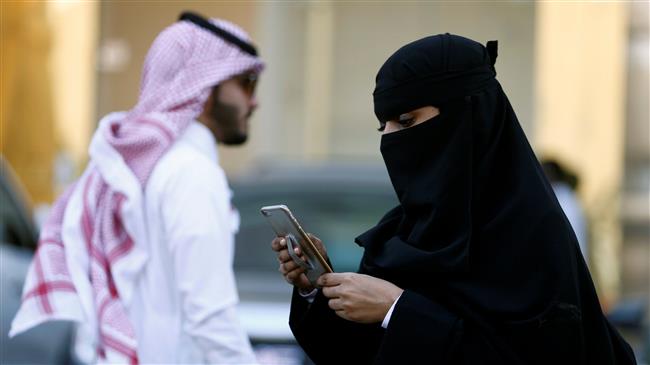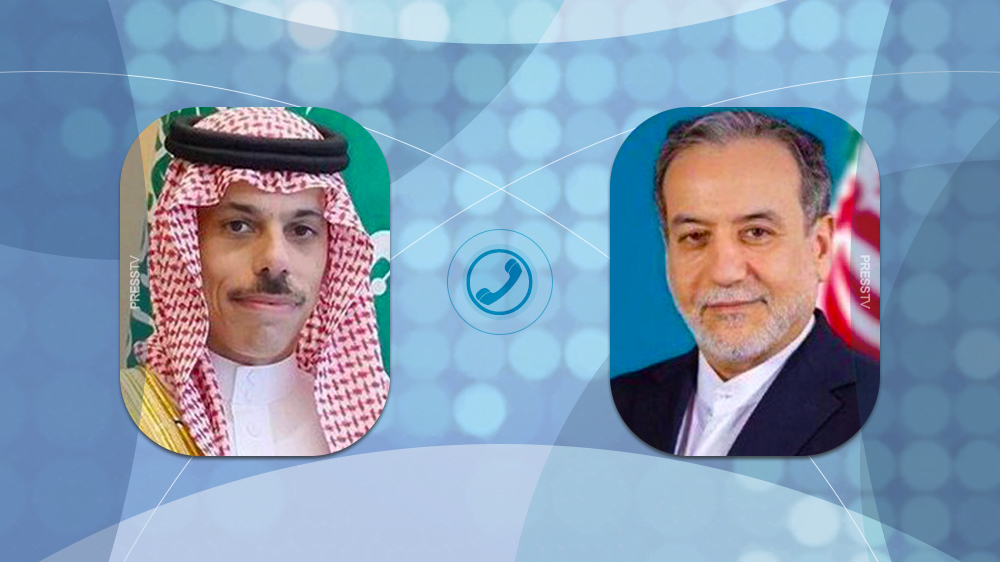Saudi Arabia, UAE using Israel's Pegasus malware to spy on citizens
A recent report has revealed that Saudi Arabia and the UAE have been among the countries that have been extensively using the spyware Pegasus to spy on their own people and track human rights advocates.
The report, published by Citizen Lab on Tuesday, said the usage of Pegasus - made by the Tel Aviv-based NSO company - in both countries had significantly increased between August 2016 and August 2018.
“Our findings paint a bleak picture of the human rights risks of NSO’s global proliferation. At least six countries with significant Pegasus operations have previously been linked to abusive use of spyware to target civil society,” the Citizen Lab said in its report, refusing to name all the countries.
Citizen Lab said it identified at least six operators with "significant operations" in the Persian Gulf region including at least two that appeared to predominantly focus on the UAE and one with a Saudi focus. One was also focused on Bahrain, it added, without elaborating whether it was affiliated to Saudi Arabia - which is helping Manama suppress dissent - or not.
“Three operators may be conducting surveillance beyond the MENA region, including in Canada, France, Greece, the United Kingdom, and the United States,” the report added.
The UAE had earlier used the phone hacking spyware to spy on several Arab figures, including the Qatari emir, Lebanese prime minister, and a Saudi prince.
The New York Times reported on August 31 that the NSO Group and affiliates had actively participated in cyber attacks on individuals sought by the UAE using the controversial Pegasus spyware to turn their smart phones into surveillance devices.
Two lawsuits have been filed against the company in Israel and Cyprus by a Qatari citizen as well as Mexican journalists and human rights activists who say they were targeted by the spyware.
Saudi national Yehia Assiri, one of the targets of the spyware, told the Middle East Eye recently that "governments that use these technologies have something to be scared of, and have no respect for human rights.”
Assiri also described the move as a reflection of the lies by the governments that use Israeli spy tools to monitor their citizens.
“They publicly claim their animosity toward Israel, but secretly use its products to spy on activists whom it then accuses of treason,” he said.
Read more:
The Citizen Lab, an affiliate of the University of Toronto, added in its report that it had also found evidence that the software might have been deployed against victims in 45 countries.
In addition researchers found indications of possible political themes within targeting materials in several countries, which they said casts doubt on whether the technology is being used as part of “legitimate” criminal investigations.
Bill Marczak, senior research fellow at The Citizen Lab, was quoted as saying that the researchers had found that the spyware was used by governments to spy on journalists, human rights defenders, opposition politicians, lawyers, and anti-corruption advocates.
“We identified in 45 countries: Algeria, Bahrain, Bangladesh, Brazil, Canada, Cote d’Ivoire, Egypt, France, Greece, India, Iraq, Israel, Jordan, Kazakhstan, Kenya, Kuwait, Kyrgyzstan, Latvia, Lebanon, Libya, Mexico, Morocco, the Netherlands, Oman, Pakistan, Palestine, Poland, Qatar, Rwanda, Saudi Arabia, Singapore, South Africa, Switzerland, Tajikistan, Thailand, Togo, Tunisia, Turkey, the UAE, Uganda, the UK, the US, Uzbekistan, Yemen, and Zambia.”
Pegasus is a modular malware. After scanning the target’s device, it installs the necessary modules to read the user’s messages and mail, listen to calls, capture screenshots, log pressed keys, exfiltrate browser history, contacts, and so on and so forth. Basically, it can spy on every aspect of the target’s life.
The spyware has been around for at least three years, when it was first detailed in a report over the summer of 2016.
$50m sportwashing: After turning blind eye to genocide for two years, FIFA funds Gaza stadiums
VIDEO | Trump’s foreign, domestic policies dealt blow after Supreme Court struck down global tariffs
Pakistan launches deadly strikes across border with Afghanistan after attacks
VIDEO | Dublin rally condemns Western-backed genocide in Gaza
Zelensky acting ‘maliciously’ by cutting oil supply: Slovakia’s PM
Iran, other Muslim states slam US envoy’s endorsement of ‘Greater Israel’ plot
Hezbollah says has ‘no choice’ but to defend itself after deadly Israeli strikes
Israeli army defends soldier’s viral ‘rape’ remark amid global outrage











 This makes it easy to access the Press TV website
This makes it easy to access the Press TV website